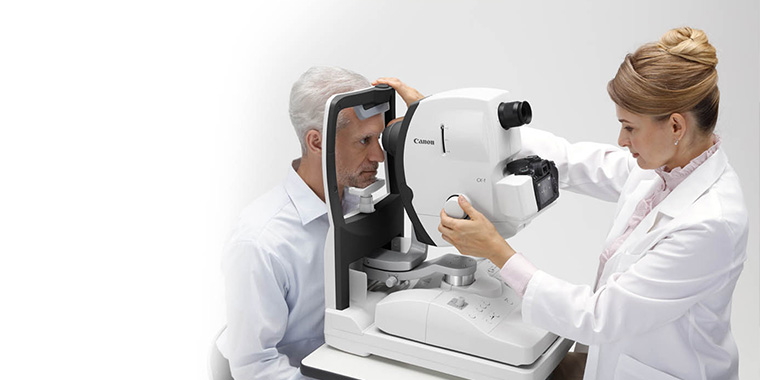Is Refractive Surgery Right for You? Aspects to Take Into Consideration for Better Eyecare
In the world of eye treatment, the choice to go through refractive surgical treatment is a substantial one that requires thoughtful consideration. From the complexities of one's eye wellness to the details of personal expectations and daily habits, each facet holds value in the more comprehensive landscape of refractive surgical treatment candidacy.
Eye Health Assessment
When thinking about refractive surgery, a comprehensive eye wellness examination is vital to examine the suitability of the treatment for each and every individual. andalusia pediatrics. This assessment entails a collection of tests and examinations carried out by an eye care specialist to identify the total health and wellness of the eyes, the presence of any kind of underlying problems, and the stability of the refractive mistake
During the evaluation, numerous elements are thought about, such as the client's clinical history, existing eye prescription, corneal thickness, student size, and tear movie quality. These evaluations help to determine any contraindications to refractive surgery, such as corneal irregularities, cataracts, or untreated eye infections. Furthermore, the evaluation assists to take care of patient assumptions concerning the possible outcomes of the surgical treatment based upon their unique eye attributes.
Ultimately, the eye health examination is crucial in ensuring the safety and efficiency of refractive surgical procedure, as it gives valuable insights into the individual's eye health status and helps identify the most suitable treatment options for achieving optimal visual results. (cardiologist andalusia)
Way Of Life Evaluation
A comprehensive way of living evaluation is indispensable in determining the viability of refractive surgical treatment for a person's visual improvement needs. Way of living elements such as line of work, pastimes, and day-to-day activities play a vital role in the decision-making process pertaining to refractive surgery.
Furthermore, lifestyle habits such as sporting activities engagement, outside tasks, or also skin care regimens can influence the healing procedure and total success of refractive surgical procedure. By performing a comprehensive way of living evaluation, eye treatment experts can tailor their recommendations and therapy strategies to satisfy the distinct needs of each person, inevitably leading to enhanced visual end results and contentment.
Assumption Positioning

Setting practical assumptions includes extensive pre-operative discussions in between the individual and the ophthalmologist. click for more The specialist ought to transparently communicate the possible dangers, advantages, and restrictions of the procedure (eye doctors in andalusia). Patients require to comprehend that while several individuals attain 20/20 vision or much better adhering to refractive surgical procedure, some may still call for glasses for specific tasks like reading or driving at evening. Handling these assumptions helps stop frustration and frustration post-surgery, causing an extra positive total experience for the client.
Danger Evaluation

Variables that may boost the threat of problems consist of age, particular medical problems like autoimmune diseases, unsteady vision prescription, slim corneas, and unrealistic client assumptions. check this site out Additionally, choosing browse this site a knowledgeable and competent doctor, following pre and post-operative care directions carefully, and disclosing any relevant clinical history can assist alleviate threats.
To decrease the likelihood of problems, ophthalmologists carry out detailed pre-operative examinations to recognize any contraindications to surgical treatment. They likewise review the possible threats and advantages with patients during the examination procedure. By involving in open interaction and shared decision-making, both the person and the eye doctor can interact to establish if refractive surgical procedure is the right selection based upon specific danger profiles and preferred outcomes.
Assessment Value
Thinking about the important duty of educated decision-making in evaluating risks and prospective issues in refractive surgical treatment, the examination process holds considerable significance in guiding patients in the direction of ideal outcomes. During the appointment, the ophthalmologist assesses the individual's eye wellness, refractive errors, and overall viability for surgical treatment. This initial analysis is important in identifying one of the most ideal treatment for each person, thinking about factors such as corneal density, pupil dimension, and existing eye conditions.
In addition, the assessment acts as a possibility for clients to review their assumptions, issues, and any kind of questions they might have pertaining to the surgery. Clear interaction between the doctor and the patient is necessary to make sure realistic assumptions and a detailed understanding of the potential threats and benefits included.
In addition, the consultation enables the surgeon to discuss the various surgical choices readily available, their respective results, and the post-operative treatment required. This extensive conversation encourages individuals to make well-informed decisions concerning their eye treatment, resulting in much better contentment and outcomes post-surgery.
Conclusion
In final thought, people considering refractive surgical treatment must undertake a comprehensive eye health assessment, examine their way of living routines, straighten their assumptions with potential results, assess the affiliated risks, and focus on assessments with eye care experts. These aspects play a crucial role in identifying the suitability of refractive surgery for each individual, ensuring optimum end results and satisfaction with the treatment.
People taking into consideration refractive surgical procedure usually have high assumptions relating to the results, anticipating excellent vision without the demand for glasses or get in touch with lenses. While refractive surgical treatment can significantly improve vision and lower dependence on visual aids, it is crucial for patients to understand that outcomes may vary based on specific aspects such as the degree of refractive mistake, corneal density, and general eye wellness.
By engaging in open communication and shared decision-making, both the individual and the eye doctor can work together to determine if refractive surgical procedure is the appropriate option based on individual threat profiles and wanted results.
Considering the critical duty of informed decision-making in analyzing dangers and possible issues in refractive surgery, the appointment process holds considerable significance in guiding clients in the direction of ideal end results. During the examination, the ophthalmologist examines the person's eye health, refractive mistakes, and overall suitability for surgical procedure.